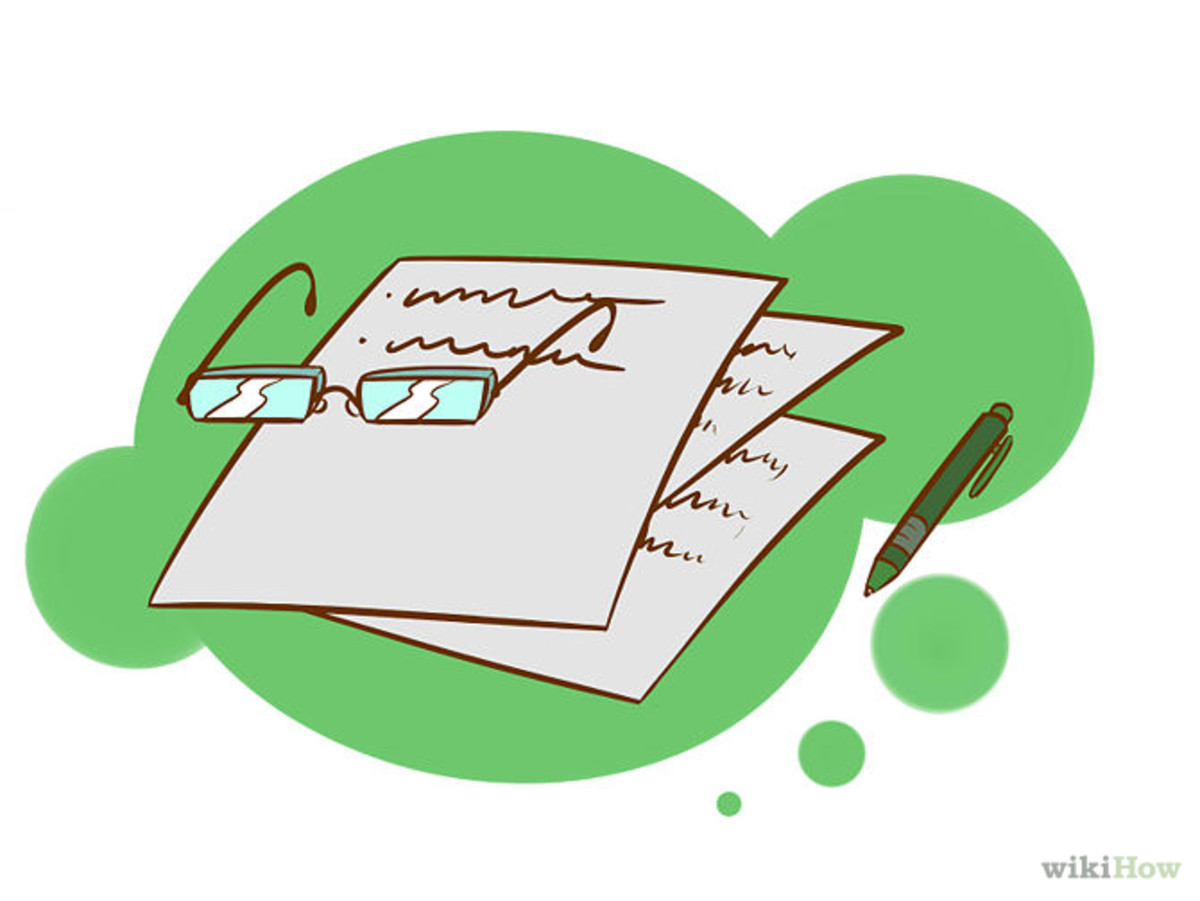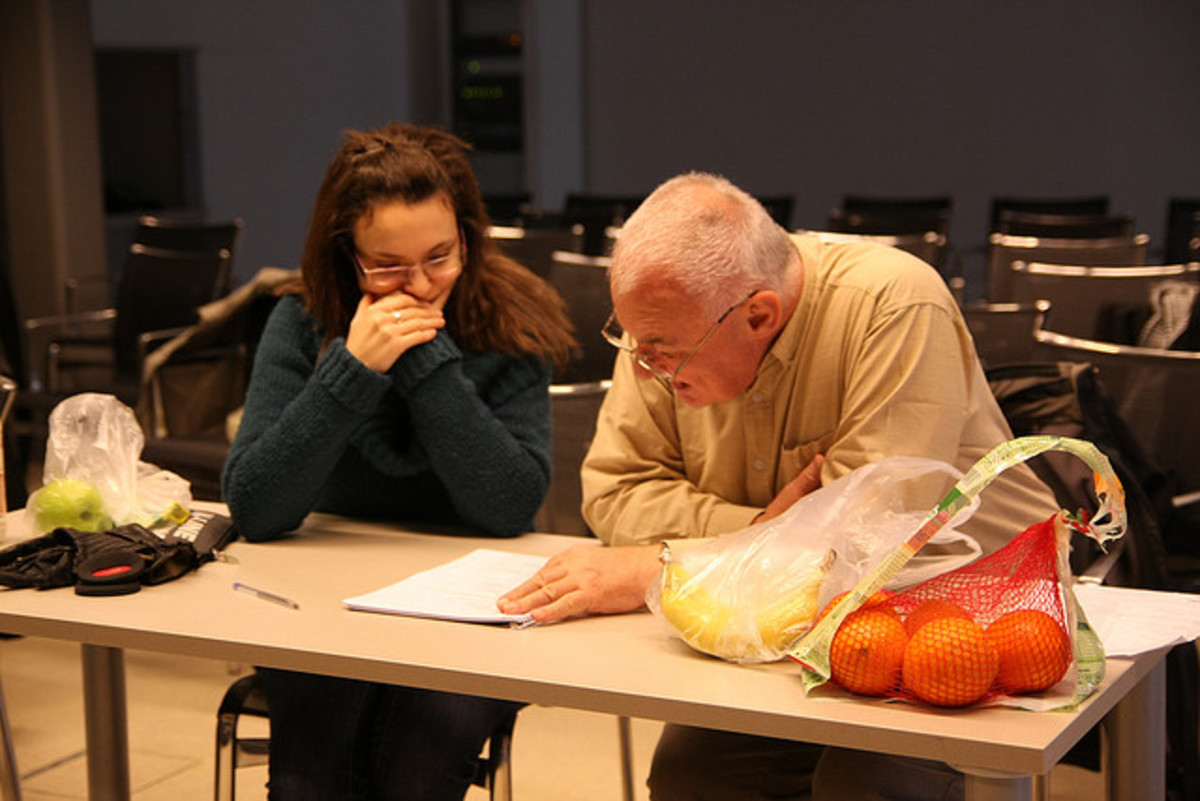Lessons Learned: When the Dust Settles...Is It Fact or Fiction?
The Cutest Puppy You Will Ever See

Get the facts first and you can distort them as you please.
Mark Twain
Being careful about what you read on line is something that readers may or may not do.
Often when someone writes on a site like HubPages for instance what the writer shares is often taken as credible and factual.
In fact many times what is shared is that dreaded O word…an opinion.
All photos have been chosen to solidify my opinions.
The Skinniest Bird Legs Ever!!

Accurate and true?
Ideas and beliefs may be couched in such eloquent phrasing that what is written has a ring of sincerity and truth to it. So, it must be accurate and true. Right?
As my Daddy used to say when he was bringing home a point..."That just ain't necessarily so!!"
Recently several articles I read were filled with opinions that were shared as fact. The articles were worded so that it appeared what they were saying was research based when in fact it was not. The intent did not seem to be one of malice. It just seemed that in order to support the premise stated the article the facts had to be manipulated a bit.
The Most Unusual Plant Leaves in Florida

“Believe none of what you hear, and only half of what you see.”
— Benjamin FranklinRead and Question
The reason this article is before you at this moment is that as I read one of the articles in particular I began to question what was being said.
Of course, being Curious Catie I had to fact check. And what I found out was interesting.
The author of the article had put a spin on the information to make it seem that what was being shared was indeed true and factual. What was the reality was it was partially true and as a result it became misleading
In the comment section, those who had read it accepted the article as factual and it was commended for its authenticity.
The failure to be accurate would not be one that would cause a serious disaster. It would cause serious embarrassment to someone who quoted it in circles where individuals knew the facts.
Know What You Do NOT Know
Clearly we cannot be experts on all topics. And many of us are not interested enough in some topics to care how accurate they are.
However as we all know there is danger in partially correct information. Rather than being lead to make an ‘informed’ decision quite the opposite could occur.
When making decisions based on what is read that will affect our health or our family’s health, safety, or economic security then the articles need to be completely truthful and accurate.
Of course most of us research and research and research when making decisions in such areas. That research often involves speaking with trusted financial advisors, medical professionals, or others. It is still important for us to do our own research as sometimes we as the lay person discover something that might be overlooked.
A baby candy cane grew into a jumbo candy cane over night.

Reliable Sources
Relying on sources that have stood the test of time is probably one of the best ways to find answers that will dramatically affect our lives.
When reading on-line, consider the source of the information if you are considering basing an important decision in part or fully on what you have read. If the source is not one that has a proven record for reliability, keep reading and researching and go to those trusted individuals for help and advice.
Factual Overload?
Superlatives Often Tip Us Off
Be wary of superlatives in articles…best, biggest, longest, smartest…any words that tend to rule out other choices.
Granted we often speak that way:
"That was the BEST blackberry cobbler I have ever eaten.".
"My grandson is the smartest child you will ever meet."
"The pumpkin I grew was the biggest one in the county."(This one of course could be verified or proven or the opposite.)
But when you are reading about topics that will affect you and your family, be wary of superlatives that promise the sun, moon, and stars.
Close your eyes and give this a try after viewing...
"Factual Claims vs. False Claims"
An interesting article from Auburn University has been cited as a source. Please take some time to peruse it.
It is a document that shares in enough detail to bring home significant points about opinions and facts. The final paragraph states the premise of the article so well “…statements may be facts, opinions, false factual claims, untested claims.
Facts are statements supported by converging evidence, whether empirical, analytical, evaluative, or metaphysical.
Opinions are self-reports. Everyone is entitled to his or her opinion because only that person has the inside information to verify a self-report.
False claims and untested claims are neither fact nor opinion. Both false claims and untested claims, but not opinions, claim to provide information about the real world. Accordingly, to accept a false claim or untested claim risks error, and error can be dangerous.
On the other hand, to reject factual claims is also risky because we fail to benefit from valid information. Mistakenly relegating facts about evaluative or metaphysical matters to the realm of opinion is a common failure of critical thinking.”
The rest of this article details many more of the fine points of the debate on the issue.
The sweetest little face ....

Make Informed Decisions
When making decisions that will affect your family in some specific way:
Research, research, research and fact check.
When you read something just for your own interest or to increase your knowledge, decide how important the content is to you. If something you read makes you question its validity, stop and check. Stopping to check takes seconds and then you know.
For me, knowing that what I read is truthful and verifiable is important.
It just is.
My SCB (senior citizen brain) does not need to be cluttered up with useless data and half-truths. There is certainly enough ‘truth’ out there for us to share without having to color an issue to make it appear the way we wish it to be. Unless of course that is our intent and that, my friends, leads us into a whole other area, does it not?
"...I've always taken pleasure in a different kind of rebellion, which is putting a positive spin on everything, trying to enjoy myself at all times."
— Zaac EfronYou Know What They Say About Opinions
My OPINION, for what it’s worth is this…not only should we be wary of what we read by unknowns like me but there are other very powerful and influential sources that are slanting the facts. There is no doubt that you know what they are. The huge news agencies on line, on television, and on the radio. What we read or are told on those outlets often has a spin. We are told the news from whatever point of view it is politically expedient for those outlets.
This is what I believe and experience has taught me is usually true but that does not mean that it may necessarily be true for you.
It is on each of us to sort through whatever we read and make a determination if it is true and accurate. If it sounds like there may be some shading, coloring, adjusting, rearranging, or some other misleading elements to the truth then decide how you wish to proceed. Challenge the authenticity of the information? Research it on your own? Correct the misinformation? Leave it alone?
Decide What is Important
The decision after all is, after all, a personal one. Each one of us will make our decisions using whatever sources we choose. Is it too broad a generalization to say that we all have our own agenda?
We may lean toward a particular source because that source supports the belief we hold as true and accurate.
We surround ourselves with individuals, friends, as it were, who share like views. And that is as it should be I suppose.
Retaining our own thoughts on a topic is still imperative. We can surround ourselves with those who think as we do but retain the option to offer a dissenting point of view. If you find that is unwelcome in your group, then you have a choice to make. Silence your opinion or express it and then deal with the consequences of your candor. Sometimes that is difficult. But, as for me, candid straightforward answers and ideas are what work for me.
Caution and attention to the slant on topics that is being offered up even in a subtle way in articles and new reports is our safeguard against being misled.
© 2014 Patricia Scott







